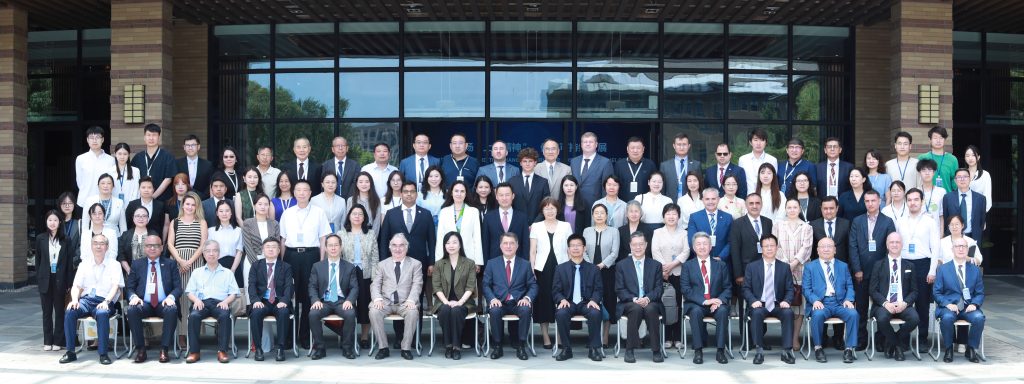
The Director of the China Studies Center, Gulnar Shaimergenova, took part in the SCO Think Tank Forum 2025 titled “Promoting Sustainable Development Guided by the Shanghai Spirit,” which began on July 12 in Shanghai. The Forum was organized by the SCO International Legal Training and Cooperation Center, Shanghai University of Political Science and Law, China Academy of International Studies, and the China SCO Research Center.
The event is held as part of the initiatives and forums organized by the People’s Republic of China during its chairmanship year of the Shanghai Cooperation Organization.
Participants included Luo Ligang, Vice Rector of Shanghai University of Political Science and Law; Liu Qing, Deputy Director of the China Academy of International Studies; Sun Zhuangzhi, Director of the Institute of Russia, Eastern Europe and Central Asia at CASS and Director of the SCO Studies Center at CASS; Huang Renwei, Deputy Director of the Belt and Road and Global Governance Institute at Fudan University; Vladimir Norov, SCO Secretary-General (2019–2021); and Amangeldy Tajenov, Deputy Chairman of the Board of the Institute for Foreign Policy Studies under the Ministry of Foreign Affairs of Kazakhstan.
In her speech, Gulnar Shaimergenova, Director of the China Studies Center, emphasized the importance of expanding joint educational programs, including organizing young leaders’ schools and retraining courses for civil servants in the field of sustainable development and digital governance at SCO universities.
She also stressed the need for legal harmonization, proposing the development of a model law for cross-border arbitration and unified law enforcement, which would simplify business and institutional interactions within the SCO space. As an example of successful regional cooperation, Shaimergenova cited the agreement between Kazakhstan and China to simplify customs procedures, demonstrating the SCO’s potential as a platform for testing and implementing advanced solutions.
Furthermore, she emphasized the importance of actively integrating businesses, banks, and investors into SCO projects, as well as the need for synergy between regional and global initiatives, support for UN reforms, and promotion of principles of justice, inclusiveness, and sovereign equality in international affairs.
The Forum became an important platform for exchanging these ideas, strengthening friendly ties, and establishing new professional contacts, where the SCO’s role as an effective regional mechanism serving as a “bridge” to transform the global governance system was highlighted. It’s approach, focused on collective responsibility, respect for sovereignty, and cultural diversity, can breathe new life into the international system, making it more balanced, sustainable, and adaptable to modern challenges.
China Studies Center
